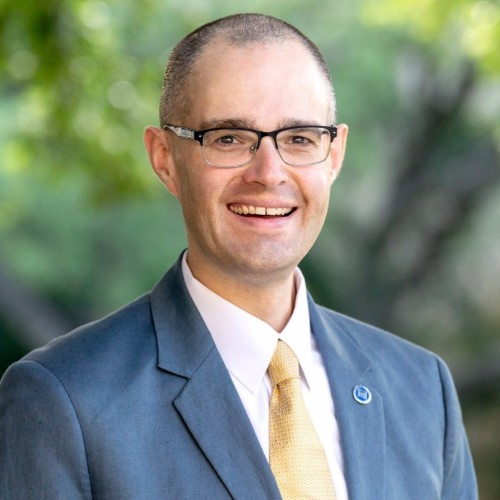All of us have likely seen them. Two teenage boys, riding bicycles through the neighborhood, each wearing a dark suit, a white shirt, a tie, a large name badge, and a backpack. They claim to be spreading a message about Jesus Christ and his dealings with the early inhabitants of ancient America. Mormon missionaries also have a book purported to be additional revelation from heaven, a book which they say serves as a companion to the Bible. They are neatly groomed, well-spoken, and can be found across the world. They are Mormon missionaries.
What to Know About Mormon Missionaries
Many, if not most, Christians know little to nothing about Mormon beliefs and likely know even less about how to handle Mormon missionaries at the front door. With this in mind, here are three important things to know about Mormon missionaries.
1. Not Trained Theologians
It is important to remember Mormon missionaries are teenagers. They not trained theologians or historians. Yes, Latter-day Saints train their missionaries prior to sending them out. In fact, Latter-day Saints have 15 Missionary Training Centers around the world. They use them for training in language studies, proselyting, and basic doctrinal training. However, the training is limited and is not a full program of advanced study. The majority of Mormon missionaries are between the ages of 18 and 22. Don’t treat them as highly specialized, trained representatives of their faith. Some are more adept at explaining their faith than others. But all should be understood to be and treated as lay representatives of the LDS Church.
2. Mormon Missionaries Stick to the Script
When LDS missionaries attend the Missionary Training Center, the bulk of their training is focused on language study and work in the “missionary discussions.” Presently, there are five missionary discussions and they can be found in a work published by the LDS Church entitled Preach My Gospel. This work is the official LDS missionary manual and is used around the world by LDS proselyting missionaries. The important aspect of the training they receive is knowing that, basically, missionaries work through a very scripted presentation of LDS belief. The training encourages them to stick closely to the script. Anytime LDS missionaries are meeting with a person, and he or she asks questions not addressed by the script, the LDS missionaries are likely to revert to the script or to their personal testimony. Put simply, the LDS missionary’s stance is often, “That’s my story and I’m sticking to it.”
3. They See Rejection as Vindication
Anytime a person acts in a rude, impolite, disrespectful, or brash way toward an LDS missionary, the missionary will consider it as persecution and as justification that he or she is right in being a missionary. Mormons take John 15:20 seriously and consider any type of persecution as vindication that Mormonism is indeed true.
Don’t slam the door in the face of the Mormon missionary pair. Or treat them with any unchristian behavior. Sometimes even telling them you simply do not have time for them will often be viewed as persecution. Though it may be true that, sometimes, we simply do not have the time available to meet with Mormon missionaries, it is extremely important that we not treat them in a non-Christian way or ask them to leave our property. We must follow 1 Peter 3:15-16 in our conversations with LDS missionaries, and with any other unbelievers, asking our questions with sincerity and offering our gospel-saturated answers with genuineness and compassion:
But in your hearts honor Christ the Lord as holy, always being prepared to make a defense to anyone who asks you for a reason for the hope that is in you; yet do it with gentleness and respect, having a good conscience, so that, when you are slandered, those who revile your good behavior in Christ may be put to shame.
Share the Message of Jesus
It is important for the Christian to answer any questions the Mormon missionary may have. It is eternally important for the Christian to share the message of Jesus with the missionary. If the Mormon missionary asks a question and you don’t know the answer, do not make something up. An answer of “I don’t know, but I’ll find out” is perfectly acceptable. In those cases, tell the missionary you do not know the answer. But will do your best to find the answer, then set a date and time for a subsequent meeting.
There are no silver bullet methods for sharing Christ with Mormons, or any other members of a non-Christian faith tradition. The method God has expressly promised He will honor and bless is the sharing the simple message of Christ. Let us take every opportunity captive for Christ. This includes those times a Mormon missionary pair knocks on the door and asks if we would like to hear a message about Jesus. Take the opportunity to share the true message of the New Testament Jesus with them.




